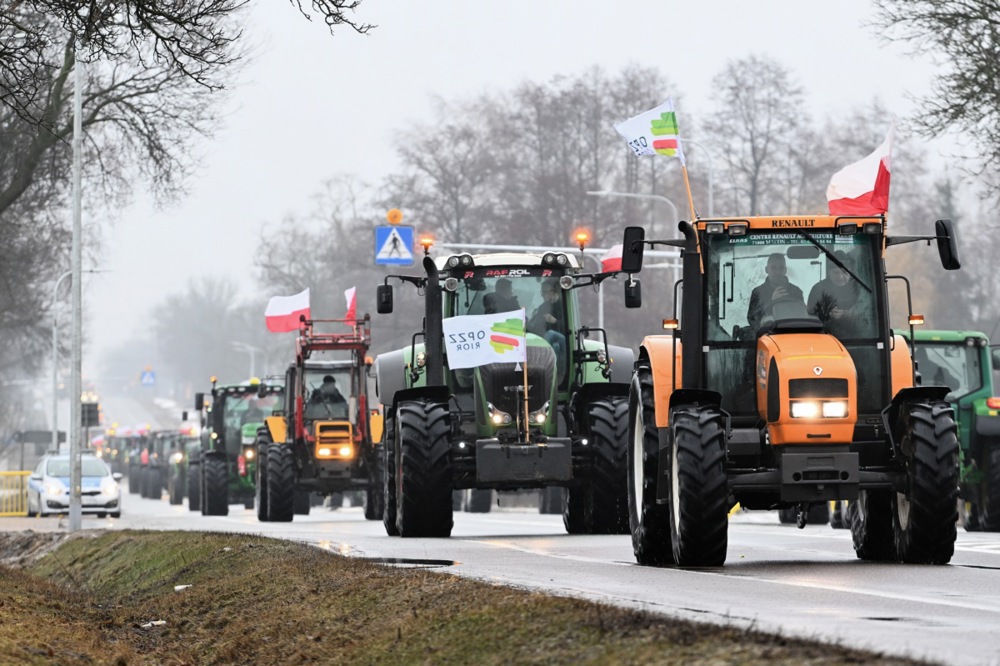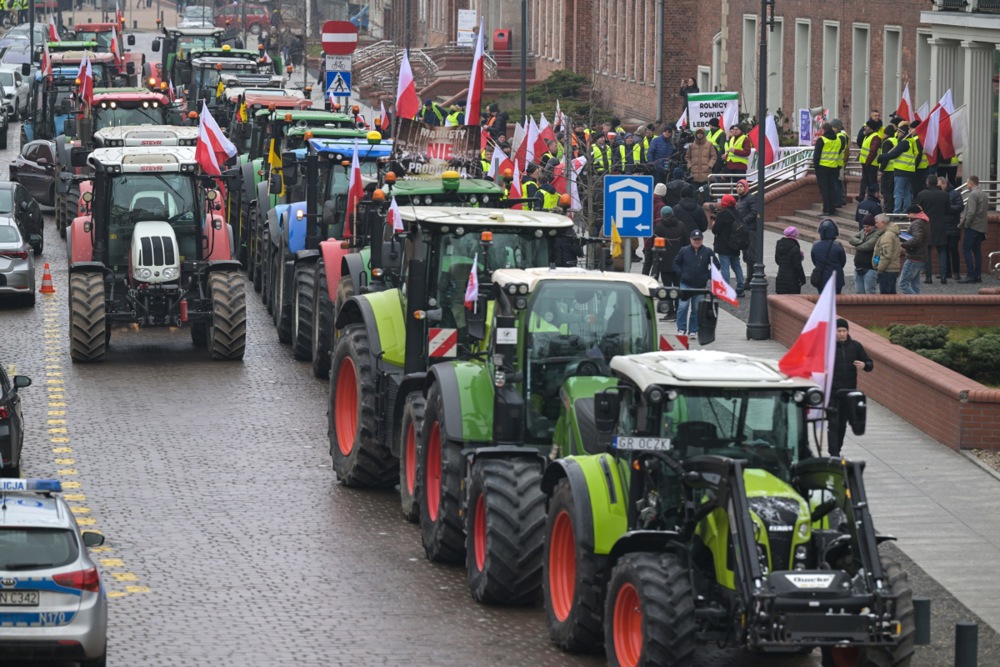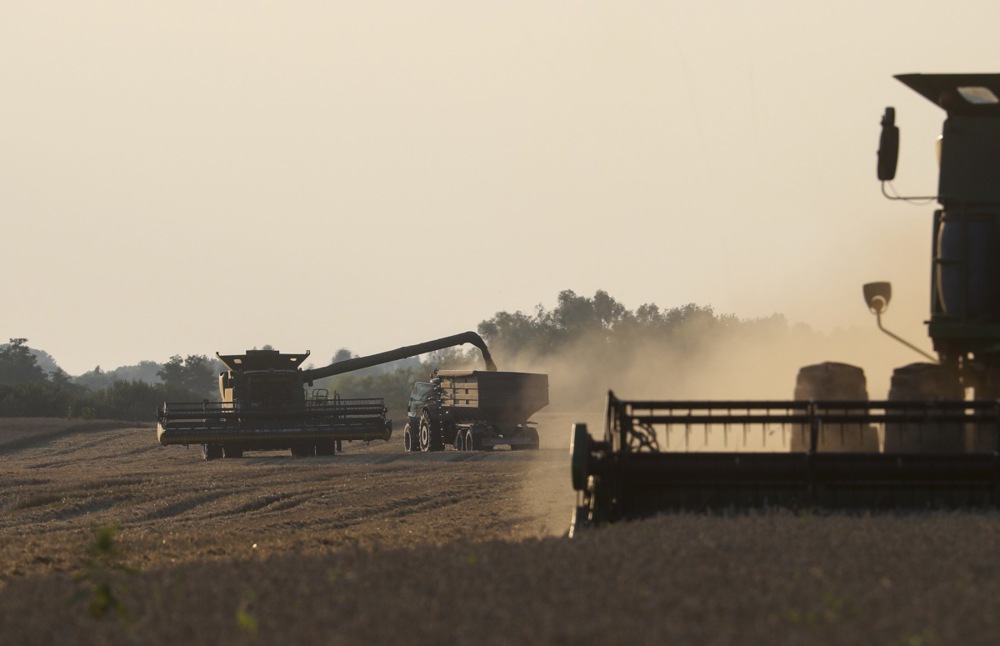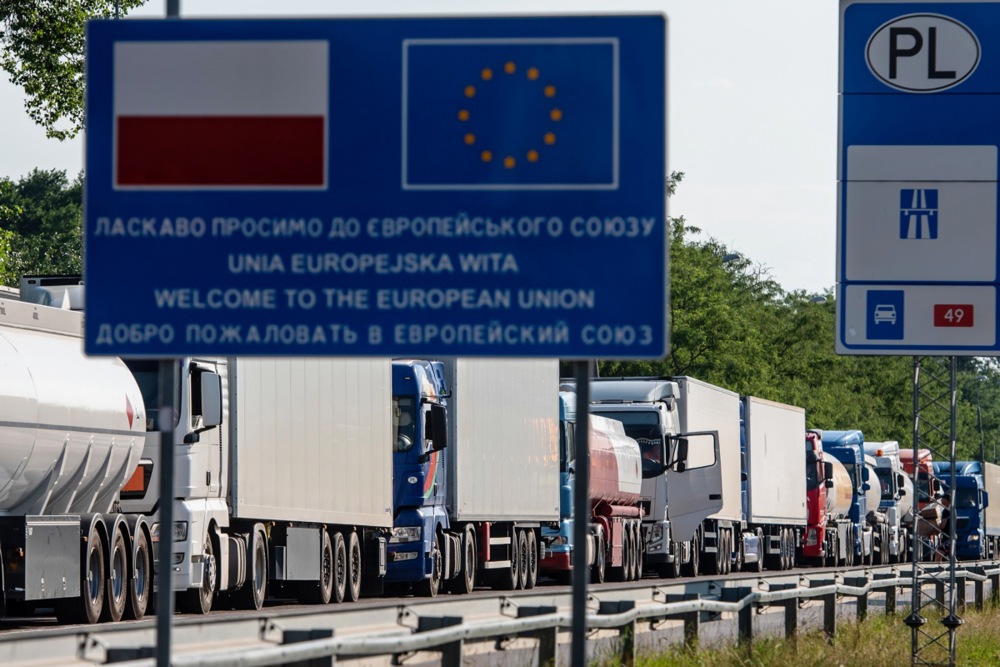Polish farmers have outraged Kyiv by spilling Ukrainian grain from railway trucks at the countries’ border.
Ukraine’s ambassador in Warsaw, Vasil Zvarych, condemned the February 20 act and called on Poland’s police to stop such protests in the future.
The protest highlighted growing tensions between the two countries about the impacts of imported goods on local farming communities.
The grain-spilling incident took place at the Medyka Polish-Ukrainian border crossing.
Demonstrators targeted several railway trucks, loaded with grain and corn and waiting for transit through Poland.
Groups of farmers congregated around the Ukrainian cars and released the contents through the open hatches.
The protests led to significant losses of grain, according to videos circulating on social media.
Ukrainian authorities have criticised the farmers’ protests at the highest level.
President Volodymir Zelenskyy said they are “about politics, not grain” and represent “an erosion of solidarity” with his country in its fight against Russian aggression.
“Things that are happening on our western border, the border with Poland, cannot be considered normal or ordinary,” Zelenskyy said in a video published on Facebook on February 19.
He added that “only 5 per cent of our agricultural exports pass through the Polish border”.
Zelenskyy also called for EU intervention on the matter.
“We need common decisions, rational decisions, to resolve this situation. Decisions made by us and the Poles, first of all, and by everyone in Europe who cares about the fate of Europe,” said the president.
Farmers in Poland began a 30-day protest on February 9.
On February 18 they were joined on the border by other protesters from other EU states, and on February 20 by a group of Polish hunters, who said they were protesting against “imposing ideologically motivated restrictions on hunting and farming”.
Polish police said until February 20, the protesting farmers had allowed one road truck to enter Poland for every truck that left.
However, as the protest escalated, they have now ceased allowing any road trucks through.
This has led to a backlog of approximately 7,000 vehicles at the border, reports the Financial Times.
The farmers’ demands include simplifying and reducing requirements under the European Union’s Green Deal.
They also call for limiting agricultural and food products from Ukraine, as well as measures to make Polish agriculture more profitable.
There were more than 200 protests recorded across Poland on February 20.
Local media reported road blockades, burning of tyres, and banners on tractors with slogans including “Stop food from Ukrainian Agroholdings”, “No one can feed themselves with a sick ideology”, and “We want to work and not go bankrupt”.
In late 2023, the countries’ border was blocked by Polish freight carriers and farmers for over two months. That protest was suspended at the start of 2024 following an agreement with Poland’s government.
Polish agriculture minister, Czesław Siekierski, in a letter to farmers on February 19, expressed support for the protests.
“Farmers are protesting for a just cause, maintaining agricultural production determines the country’s food security,” he says.
However, he also warned “a complete closure of the border could result in the suspension of Polish agricultural exports to Ukraine, which could result in the loss of many jobs”.
Poland exported just over €1 billion worth of farming products to Ukraine in 2022, he said.
The minister said Poland has made progress in negotiations with the EU on farmers’ demands.
The European Commission has pulled back on some of its green proposals, such as requiring a 50 per cent reduction in the use of plant protection products by farmers, Siekierski noted.





